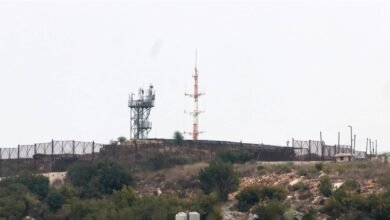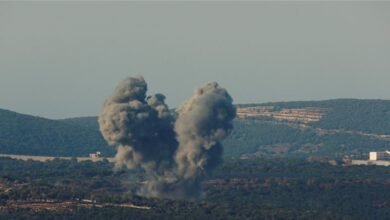The clash of the titans threatens the global economy: a shock to global markets
Oil prices fluctuate due to the impact of missile exchanges between Tehran and Tel Aviv
Over the past few days, the oil markets constituted an indicator of the extent to which geopolitical tensions were reflected in oil prices, which interacted and witnessed wide fluctuations in response to the mutual responses between Iran and Israel, as the price of Brent crude rose, on April 13, to its highest level in six months, recording 92.18. Dollar per barrel, hours before the Iranian attack, as a warning of an imminent Iranian attack. Then prices fell on Monday, April 15, to $89.70, after it became clear that the attack was less harmful than expected. But prices rose again on Tuesday morning to $90.42 due to Israeli threats of retaliation. On Friday morning, prices rose in early trading by about 4% after Israel launched a military strike in the city of Isfahan, so Brent crude futures contracts crossed the $90 threshold, then fell hours later to $86, after it became clear that the Israeli attack was limited, according to the Iranian Foreign Minister’s description. Small drones did not cause material or human losses in Isfahan.”
The pricing of the conflict and the entry of Iran and the Hebrew state into direct confrontation would have major repercussions on all aspects of the global economy and international trade, according to the reading of the economist and Dean of the College of Business Administration at the American University of Technology, Professor Pierre Al-Khoury, in his interview with “Lebanon 24”, given the region’s geopolitical importance. In which both countries are located. Al-Khoury refutes the effects of the expanding fiery scene in the region on many aspects. “With regard to the oil and energy markets, the expansion of the conflict may lead to disruptions in oil supplies, especially if things go towards disrupting navigation in the Arabian Gulf or the Strait of Hormuz, which is a vital waterway.” About 20% of the world’s oil passed through it. Therefore, fear of supply disruption may lead to higher oil prices, which increases global energy costs and affects economic growth.” Especially since the Middle East region represents a third of global oil supplies, as it includes a number of the largest oil exporters in the world. Iran is also one of the main producers of OPEC, as it produces 3 million barrels per day, and the International Energy Agency ranked it last year as the ninth largest producer of crude oil in the world.
Threatening international trade routes and declining investments
As for international trade, it will not be immune from the fragments of war that will affect commercial routes, especially those passing near the areas affected by the conflict, according to Al-Khoury, “If the main ports in the Arabian Gulf are affected, this may lead to a delay and an increase in logistical costs, which in turn will be reflected in global supply chains.” . Financial markets, in turn, fall within the consequences of conflicts in the Middle East, which usually bring with them fluctuations in global financial markets, as investors seek to transfer their investments to safer assets such as gold or government bonds of major countries. One of the possible consequences of the direct confrontation between Iran and Israel is a decline in investment in the region due to fears of a continuing cycle of violence or instability, which will hinder economic growth in the countries concerned and the entire region.”
Global security is affected by two wars
The repercussions of the confrontation entering the war turn between Tehran and Tel Aviv will not be limited to global markets, but will affect security and international policies. Al-Khoury says, “It is possible that major powers will intervene or be affected by the conflict, which will complicate international relations and affect global politics, which may lead to a re- Forming alliances and influencing other international issues. This is happening in light of the continuing war in Ukraine and the tension in the South China Sea. All of these factors indicate that the direct conflict between Iran and Israel may lead to serious economic and geopolitical consequences that may extend beyond the borders of the region, affecting the economy and security of the entire world.”
Until now, the equation of responding with response and fire with fire, between Israel and Tehran, is still well-paced and the damage is being calculated, but the game may slip off its set course at any moment, erupting into a wide and destructive conflict in the region, especially since the mutual attack since the targeting of the Iranian consulate in Damascus and so on. The responses followed, setting a precedent in history and breaking the red lines between them, all of which raised the level of danger from a gradual slide into a comprehensive regional war with dire consequences.







